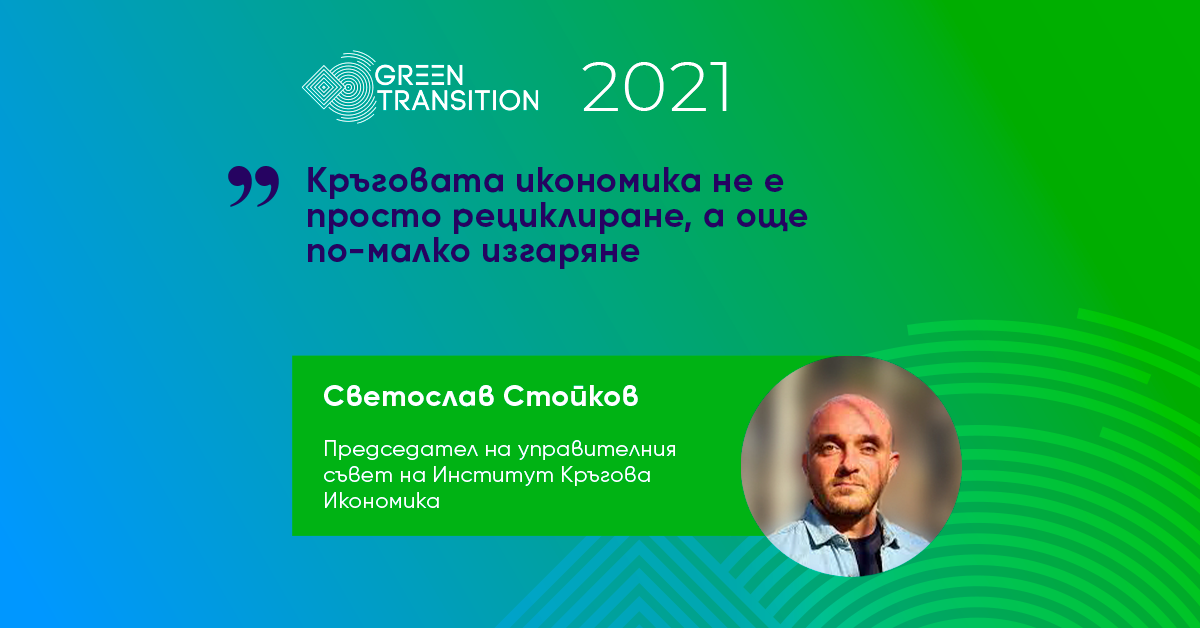Cities have an extremely high potential for serious change because they have a concentration of resources, talent, creativity. In the process towards the establishment of the circular economy, municipal strategies are gradually being implemented, which, however, encounter many obstacles, there is a lack of communication between the administration, business, NGOs and academia. Unfortunately, lobbying interests are also being promoted.
This was said by Svetoslav Stoykov, Chairman of the Board of the Circular Economy Institute during the forum “Green Transition – Solutions and Challenges for Bulgaria”, organized by Dir.bg and 3eNews.
It is very important to achieve continuity of policies when changing political governance. That is, we need long-term strategies to follow for years, Stoykov noted and pointed out that if we make the transition at the city level to sustainable circular models, we have in fact solved a major part of the problems of our civilization.
What is circular economy
Stoykov noted that there is still a misunderstanding of what circular economy is as a concept. In Bulgaria it is still wrongly used as a synonym for sustainable development and even recycling.
At the top of the waste pyramid is preventing waste from existing, and at the bottom is incineration and landfill. The claim that waste incineration is part of the circular economy is absolutely false. It contradicts the very idea of a circular economy, Stoykov said.
The incinerator generates more carbon emissions per megawatt-hour of energy produced and generates additional harmful pollutants compared to the fossil gas used in district heating.
The circular economy is much more than recycling, it is an entirely new model of design, production and consumption of resources – to achieve their maximum efficient use in every sector of the economy by extending the useful life of products and thus minimizing waste, Stoykov explained. The circular economy is not limited to recycling, it offers mechanisms for the overall functioning, value creation and preservation, of sustainable business models, he added.
The main principles here are: preserving and improving natural capital; optimizing resources through circularity of products, components and materials; improving the system by eliminating negative externalities.
Economic analysis shows that the potential of circular businesses is estimated at €1.8 trillion by 2030, so there will be an opportunity to create jobs, stimulate innovation and generate significant benefits and improvements for the environment.
